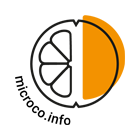You are here:
Isolated isoflavones
Soy and red clover contain isoflavones. These bioactive plant substances are also called phyto-estrogens because their chemical structure is similar to that of the human hormone, estrogen. They can, therefore, also have a hormone-like effect. There are reports that Asian women who follow a traditional diet and regularly consume soy products scarcely suffer at all from menopausal complaints. However, opinions differ as to whether this can be attributed to a diet that is rich in soy. Furthermore, when looking at the assumed effects of isoflavones, a distinction must be made between whether they are ingested naturally from food or in isolated, fortified form via food supplements. In Germany for some time now food supplements with isolated isoflavones have been available on the market as an alternative to the prescribed hormone replacement therapy for menopausal complaints. The products are claimed to be efficacious natural products without any side effects. Against this backdrop, the Federal Institute for Risk Assessment (BfR) has undertaken a health assessment of isoflavone-containing food supplements.
To this end BfR evaluated a number of scientific studies. It revealed that, according to the latest scientific knowledge available, the assumed positive effects of isolated isoflavones on menopausal complaints have not been sufficiently substantiated. The adverse effects reported to BfR like nausea, constipation, swelling or reddening are possibly caused by allergic reactions to the soy protein contained in these products or to other factors. BfR is of the opinion that the toxicological risks regarding the hormonal situation of female users are to be viewed more critically than these short-term, acute adverse effects.
Toxicological studies showed that isoflavones, when administered at high doses in isolated or fortified form, impair the functioning of the thyroid gland and can change mammary gland tissue. It cannot be ruled out that these estrogen-like effects could promote the development of breast cancer. The necessary long-term studies, to prove the safety of isoflavone-containing products, are not available. Nor is it possible, at the present time, to reliably establish a dose which could be considered safe. As women during and after menopause are at increased risk of breast cancer, the long-term intake of food supplements with a high level of isoflavones is not without risk for this consumer group.
BfR expert opinion: Isolated isoflavones are not without risk (277.7 KB)
(277.7 KB)03/04/2007

